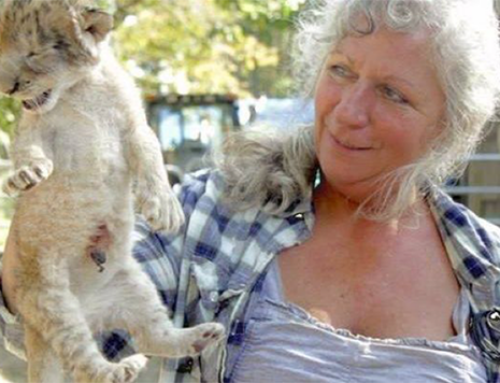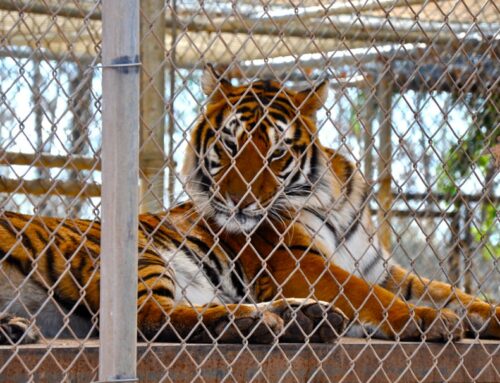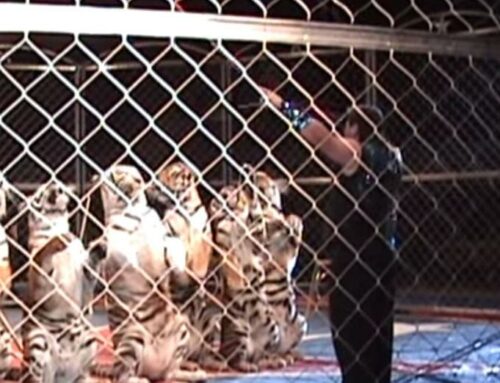Ontario breeder selling lion and tiger cubs as house pets

A two week old lion cub at a Russian zoo. An Ontario breeder is offering up lion and tiger cubs as house petsBy Tom Spears
OTTAWA — A breeder is offering three-month-old lion and tiger cubs for sale as house pets on an Ottawa website. And owning them is perfectly legal in most of Ontario, though not in Ottawa.
Four cubs are for sale at $2,800 each, says the breeder, who identifies herself by e-mail as Jenifer Ashu. She doesn’t say in her ad where her business is located.
The cubs are advertised on UsedOttawa.com, a website that advertises items for sale in the Ottawa-Gatineau region.
It says: “We are breeders and we have exotic cats, white lion cubs and tiger cubs available in our cattery. We have been giving them home trained method with kids and other domestic animal. Contact us for more information if interested to own one of them in your home as house pets.”
The ad doesn’t list the business’s name or phone number. Buyers respond only by email through the website.
When the Citizen answered the ad, the breeder sent this response: “We breed exotic cats and also have lion and tiger cubs all ready to go. The cubs are 15 weeks old and are 4 in number. They go for $2,800 each.
“Let me know if you are still interested in the cubs and the number you will like to get. Feel free to ask any questions that you may have.
“Regards Jen.”
Jen hasn’t responded to a request for an interview.
Tigers can reach 3.3 metres and 300 kilograms. Lions are almost as big, up to 250 kilograms.
Owning lions and tigers is banned under an Ottawa bylaw. But many municipalities don’t regulate this.
It’s legal to own them under Ontario law; last year a 66-year-old man in southwestern Ontario was killed by the tiger he had owned for years. He had won a long legal battle to keep it.
“Of course they’re cute as crap when they’re two to three pounds and people see them in the box on the pretty purple towel,” says Tammy Schmidt, curator of carnivores at the Philadelphia Zoo. But the care is enormous.
Get ready for a cat to gain two-plus kilos a week, she adds. Get ready for scared neighbours with pickets.
“This is a 20-year commitment, if not more,” if the cat stays healthy.
And she warns that even a happy tiger can pounce — a common playful greeting — and hurt the owner badly with teeth and claws.
An animal welfare group says it’s cruel to the animal and dangerous for humans to raise lions and tigers as pets.
“In Ontario, anybody can own any kind of non-native species,” said Patrick Tohill of the World Society for the Protection of Animals, in Toronto.
Importing animals caught in the wild is illegal. But it’s legal to buy cubs bred here.
“There are all kinds of lions and tigers in roadside zoos and in private collections,” he said. “There’s even a number of entertainers that perform with lions, everybody from magicians to strippers.”
One estimate says there are some 500 lions and tigers in private hands in Ontario, he said.
“Your neighbour, if he wants to have a lion or a tiger, can have one unless the municipality acts to say he can’t. You can’t say boo.”
The breeder may not be local, he said. The WSPA recently found Internet ads for endangered monkeys that appeared to be local but that were based in Africa.
The Canadian Veterinary Medical Association has a formal position saying it “does not condone the keeping as pets of any native or exotic wild animal species, or hybrids thereof, that are considered to be inherently dangerous to humans and other animals. Veterinarians are also discouraged from performing surgical procedures on these animals for the sole purpose of making the animal a safer companion.”






Leave A Comment
You must be logged in to post a comment.